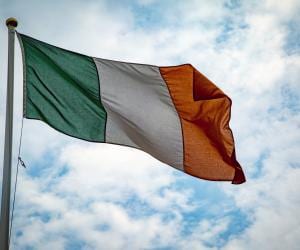Irish gaming bill progresses in Dáil

The Gaming and Lotteries (Amendment) Bill 2019, Ireland’s placeholder legislation for the country’s betting and gaming sector, has progressed to the committee stage in the Dáil Éireann.
Meanwhile Minister for Finance Paschal Donohoe has confirmed that work on an alternative tax system for independent bookmakers to replace the 2% turnover tax in place since January this year is ongoing.
The Gaming and Lotteries (Amendment) Bill 2019 is designed to update Ireland’s 1956 Gaming and Lotteries Amendment Act by setting maximum gaming machine stakes and prizes at €10 and €750 respectively.
It will also formally impose age restriction of 18 years on betting and gaming products, and set out a new, improved licensing system for lotteries.
A second reading of the bill in the Dáil took place earlier this week, with a motion to refer the legislation to the Select Committee on Justice and Equality proposed and accepted. The bill has already been approved by the Seanad Éireann, the upper house of the Irish Parliament (Oireachtas).
While Deputies were largely supportive of the bill, many expressed disappointment at its narrow scope.
“We believe there is need for much more thorough control and regulation of gambling,” Fianna Fáil Deputy Jim O’Callaghan said. “Regrettably, the legislation before us deals only with very small aspects of the issues concerning gambling that are problematic in this country.”
Others, including Sinn Féin’s Donnchadh Ó Laoghaire, criticised delays in implementing the legislation, which was first mooted in 2013. However Minister of State David Stanton said the 2013 proposal was never drafted.
“One of the things I have discovered even during the course of this bill is that it is extremely complex to draft,” Stanton said. “It takes a long time. I was involved in the prelegislative scrutiny phase through a committee at that time. Since then, things have changed again.”
He also addressed the limited scope of the bill, noting that work on the Gambling Control Bill, which supersede the Gaming and Lotteries (Amendment) Bill 2019 and establish a dedicated regulatory authority for the market, is ongoing. This new body will oversee licensing and enforcement activities, and establish advertising standards, customer monitoring and customer protection measures for the sector.
The Gambling Control Bill is currently being developed by lawmakers, though it is unlikely to be presented to the Oireachtas before 2020, according to Stanton.
In related news, Finance Minister Donohoe said he had held numerous meetings with representatives of independent bookmakers and with operators to gather views on the country’s 2% turnover tax.
Implemented from January 1, 2019, the industry has long warned that this tax could lead to hundreds of shop closures and thousands of job losses. Following the new rate’s passage in November 2018, Donohoe agreed to an immediate review of the tax.
Responding to a question from Sinn Féin’s Pearse Doherty, Donohoe said the independent bookmaking sector had provided an alternative proposal to the 2% tax.
“[I] am now engaging with the European Commission to ascertain whether that can be implemented,” he added.
A tax strategy paper, due to be published during the summer, will update the Oireachtas on the options for potential changes, which could be implemented in the country’s 2020 budget.
Despite this, Donohoe noted that the industry levy had not been raised since 1975, and stood “at an all time low”.
However, Doherty urged immediate action: “I know we need to engage with the European Commission but I appeal to the Minister not to leave this until the autumn.
“If there is a way to signal to the industry that a change is coming, that will give them the confidence to go to their bank managers and hold on a little longer knowing they do not have to close down their shop,” he said. “Many of these are in rural isolated communities. I would appreciate that.”
